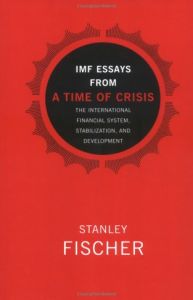Join getAbstract to access the summary!

Join getAbstract to access the summary!
Stanley Fischer
IMF Essays from a Time of Crisis
The International Financial System, Stabilization and Development
MIT Press, 2004
What's inside?
The World Bank and the International Monetary Fund keep filling their original functions in a rapidly changing world.
Recommendation
This lucid, plain, straightforward book is not necessarily the sort of thing one expects from an economist, yet author Stanley Fischer is one of our era’s greatest economists. His work at the International Monetary Fund put him on the front lines during some of the twentieth century’s most serious economic crises and panics. He has a unique and valuable perspective. His timely discussion of the IMF and the World Bank provides a sobering antidote to the rhetoric of both globalization and anti-globalization. Fischer reminds us that the IMF’s many glaring failures and imperfections are the stumbles and flaws of an organization that has done good work to further a noble purpose. It also has proven willing and able to change when the facts do. For good reason, Fischer’s essays sometimes read like the arguments of a defense attorney countering prosecutorial accusations. The IMF has come in for so much criticism in recent years that it is refreshing to discover so many points in its favor, and getAbstract.com finds it both fair and prudent to consider them carefully.
Summary
About the Author
Stanley Fischer is president of Citigroup International and vice chairman of Citigroup, Inc. He served as first deputy managing director of the IMF from 1994 to 2001. Prior to that, he was Killian Professor and head of the department of economics at the Massachusetts Institute of Technology (MIT).

















Comment on this summary